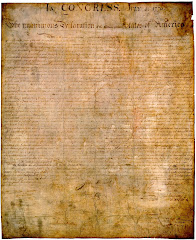Banking With Hitler Part 2 of 5
Banking With Hitler Part 3 of 5
Banking With Hitler Part4 of 5
Banking With Hitler Part 5 of 5
 Sutton makes that case that several Wall Street firms were deeply involved in financing the rise to power of the National Socialist German Workers Party (i.e., the Nazis) in pre-World War II Germany. Sutton shows that first, Wall Street financed the German cartels in the 1920's, second, that Wall Street indirectly financed Hitler and the Nazi Party, prior to their rise in power in Germany, third, that Wall Street firms profited from the build-up to war and the war itself, even after the U.S. got involved, and finally, that U.S. firms worked to cover up their complicity after the war.
Sutton makes that case that several Wall Street firms were deeply involved in financing the rise to power of the National Socialist German Workers Party (i.e., the Nazis) in pre-World War II Germany. Sutton shows that first, Wall Street financed the German cartels in the 1920's, second, that Wall Street indirectly financed Hitler and the Nazi Party, prior to their rise in power in Germany, third, that Wall Street firms profited from the build-up to war and the war itself, even after the U.S. got involved, and finally, that U.S. firms worked to cover up their complicity after the war.This book is the third in a trilogy. The two other books chronicle Wall Street's involvement in the rise of FDR and the Bolshevik revolution in Russia. The anti-Semitism and Nazi sympathies of businessmen like Henry Ford is no secret, so it's surprising that this subject gets so little play. Given modern leftist thought on big business, one would think that they would leap at the chance to link Wall Street to the Nazis. The reason they don't is no doubt due to Sutton's larger effort at showing that Wall Street supported "corporate socialism" not only in Germany, but in Russia and the U.S. as well. Since leftists still idealize FDR and the brutal regime that arose to become the U.S.S.R., they probably prefer to forget about the businessmen who connect them all. Sutton himself is no anti-business left-winger, instead he is a conservative concerned with the actions of an "unelected power elite", controlling events/governments/societies behind the scenes, to the detriment of freedom everywhere.
It makes for rather dry reading, but Sutton goes into extensive details about the persons, funds and timelines that show the deep connection between certain American Big Businesses and the Nazis. Why would Big Business embrace such a horrid political movement? Although Sutton does not go into details about motivation, there is a good case to be made that many businesses were not fond of the untrammeled free market and instead yearned for the security of government guaranteed profits, regardless of the expense to others in terms of loss of freedom. These businesses saw themselves as the contractors running the government machinery of what was thought to be the inevitable march to socialism. Sutton doesn't mention it, but many in the early twentieth century thought that some form of socialism was unavoidable, and that it was a choice between that and corporate domination through monopoly. Thus these businesses saw themselves as merely working towards what was almost pre-destined to happen, and ensuring that they would be the ones running the show and reaping the benefit.
The book turns a bit conspiratorial in the end. Sutton invokes the Kennedy Assassination, the Korean War and Vietnam War and the Council on Foreign Relations all in an attempt to suggest that we are being ruled by an unelected power elite, bent on societal domination at all costs, in the name of profit. There's no need to invoke conspiracy, though. The selfish acts of business men, tempted by access to the levers of power, is as good an explanation as any.
The case that Sutton makes is compelling. If his evidence is able to withstand scrutiny, it's hard to come to any other conclusion than that Big Business was willing to deal with the worst of the worst in order to profit via the coercive powers of government.
Chase Bank collaboration with the Nazis Part One
Chase Bank collaboration with the Nazis Part Two
Secretary of Treasury Henry Morgenthau, who began investigating this collaboration, He found the Chase were not alone. His archives reveal that both British and American bankers continued to do business with Hitler, even as Germany was invading Europe and bombing London. Chase Bank in Nazi-occupied Paris after Pearl Harbor was doing millions of dollars' worth of business with the enemy with the full knowledge of the head office in Manhattan?
Gold that had been looted from the national banks of Austria, Holland, Belgium, and Czechoslovakia, or melted down from the Reichsbank holdings of the teeth fillings, spectacle frames, cigarette cases and lighters, and wedding rings of the murdered Jews.





